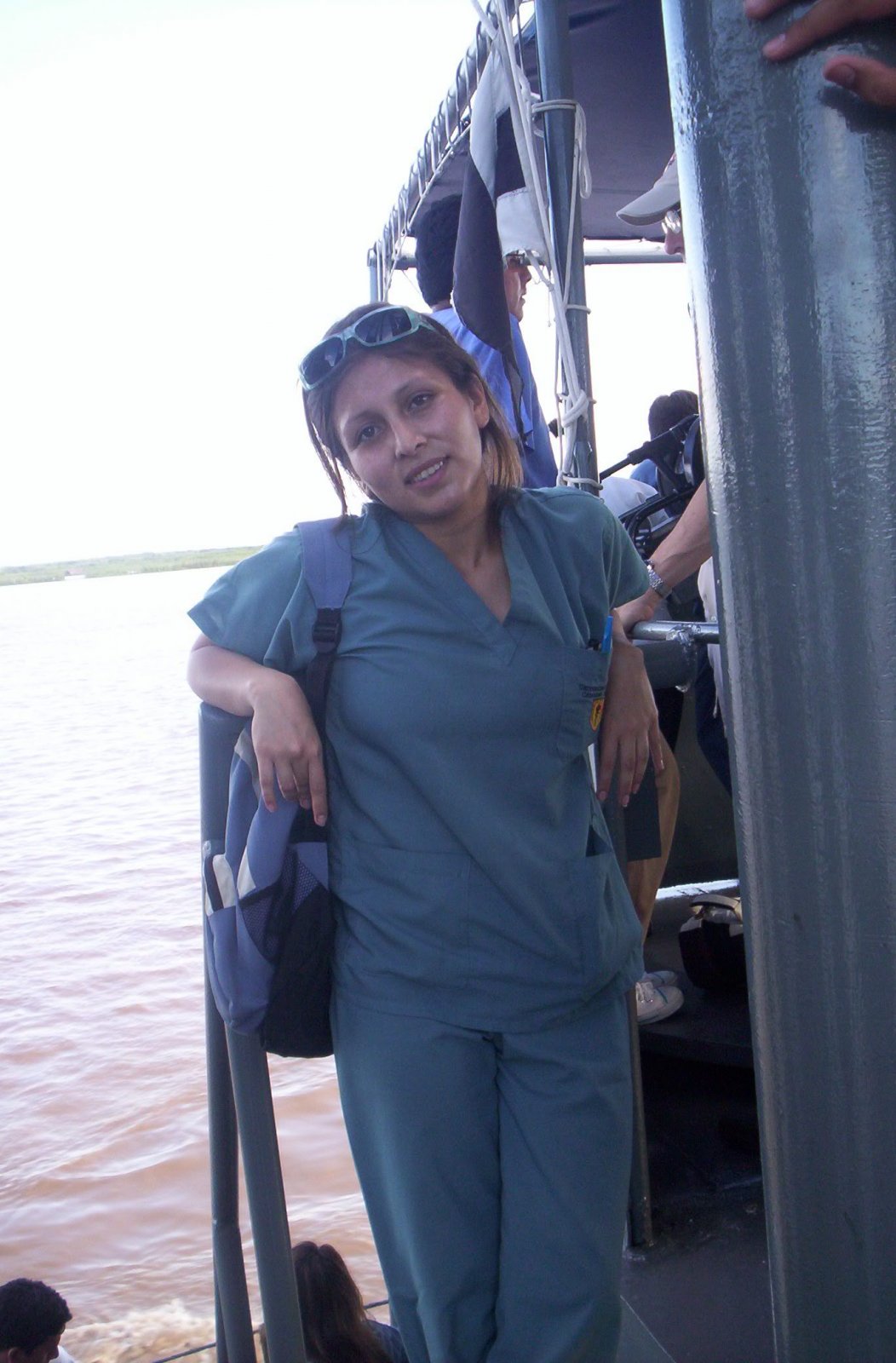Silence can only be an Accomplice to the Hurting
May 28, 2019
Story

I’m a medical doctor.
Seven years ago, I was going through the last year of my studies at the University, a period which is called “Internship” in my country. During that year, I was expected to practise in various hospitals and in different wards; and several times during that year I had to endure being treated inconsiderately. It didn’t matter if I had barely slept 2 or 3 hours or nothing at all the previous night, it didn’t matter if I had missed breakfast and lunch, it didn’t matter if I was emotionally frustrated because of a clinical case: no, of course the only things that mattered was that I tend to the patients and clinical cases that had been assigned to me, that I make sure that the work plan of the day was done just as scheduled, and that the patient be discharged from the hospital with his illness resolved.
Despite the fact that we’re living in the 21stCentury, many times I was “diminished” just because I am a woman, with comments such as: “the she-intern lacks strength to help carry the patients”, “the she-intern gets tired faster than the male interns”, “the she-intern gets higher grades because she’s a woman”, and (my favorite)“the she-intern gets treated better just because she’s pretty (and that’s about it)”. Truth be told, I have always been quite capable to simply ignore those attitudes and phrases, considering that 80% of all the spite that came my way, came from men.
But the remaining 20% of it came from women, and that was the percentage that always baffled me and made me wonder:why should a woman antagonise another woman?
Six months into my internship, I developed intense pain in my lower back with a tingling sensation in my legs, and sometimes the pain became so excruciating that I found myself unable to fully stand up, so I had to walk hunched. I had a MRI, with which I was diagnosed of three herniated disks in my lumbar spine, so I was given an aggressive treatment to counter the pain. Even so, many days my physical activity at the hospital was so intense, that it felt as though the pain was impervious to analgesics.
By that time I was in one of my favourite wards: the gynaecology-obstetrics ward. One day, they awarded me by letting me be the main surgeon in a Caesarean Section intervention to deliver a baby, helped by the third-year fellow resident. I had waited so long for that moment! I had read a lot, I always answered the questions they shot at me at the medical rounds, I knew by heart the medical histories of every single one of my patients in the ward, and I never missed a day of work despite my lower back pain. I followed up the evolution of the patient on whom I performed the C-section, and I was exhilarated when she was discharged from the hospital with no complications whatsoever. That day, my third-year fellow resident (Anita) invited me out for a cup of coffee to celebrate, and she congratulated me. Looking back,I think it was one of my happiest days ever.
Two days later, I had to work a 24-hour shift non-stop. Yes, medical interns sometimes have to work up to 36-hour shifts non-stop. By the end of that shift, the pain was so unbearable that rendered me unable to even stand on my feet, and even when sitting I felt such pressure in my lower back that made my buttocks tingle. My herniated disks were complaining unrelentingly. My co-intern (a guy from my university who worked with me in that same ward) injected me with an analgesic, but even so the pain persisted, and of course, to lay down to rest was not an option because I had to keep on monitoring my pregnant patients.
At that moment, we were visited by the second-year fellow resident, whom I will call Lucy. She demanded that I got into the operating room with a patient, as an assistant for the surgical procedure. I informed her that I felt extremely indisposed and that I barely could tolerate being on my feet, and my co-intern swiftly volunteered to take my place by saying: “I’ll go, doctor Lucy, Enma is extremely sick, I already injected her with an analgesic and she’s not responding favourably nonetheless”.
Lucy answer orotundly: “NO, I’ve said she’s going into the operating room, andSHEis going”. So I respectfully (and warily) addressed her: “Lucy, please, excuse me but I’ve been diagnosed with herniated disks, I never complain about it but today it really is unbearable. Please, let me stay here monitoring the pregnant patients, please, let someone else take my place just this time”. Lucy got so worked up that her face turned an unhealthy shade of red and she even had a physical transformation that made her seem three times taller. Not caring for a minute that we were surrounded by patients and nurses, she yelled with such a stentorian voice:“I’VE SAID THAT YOU ARE GOING, ANDYOUARE GOING! THE OTHER DAY, WHEN THEY GAVE YOU THE C-SECTION YOU MENTIONED NO PAIN, AND NOW YOU EXPECT ME TO BELIEVE THAT YOU’RE IN PAIN? IT’S OBVIOUS THAT YOU ONLY WANT A PART IN THE PROCEDURES THAT ARE CONVENIENT TO YOU, BUT THAT’S NOT THE CASE WHEN IT COMES TO FOLLOWING ORDERS! STAY HERE THEN, AND I’M GOING TO REPORT TO THE HEAD OF THE WARD THAT YOU ARE TO BE GIVEN A FAILING GRADE IN GYNAECOLOGY!”
Saying that, she stormed out.
I cried.
My tears started pouring out silently, and I hid in the bathroom because I didn’t want the nurses and patients to see me like that. No one had ever called me a lying, cheating, selfish and irresponsible person who only looked after what was convenient to herself; all in one sentence and in such a blunt manner. She was a medical doctor, just what I was aspiring to become. How could she not understand that the pain due to my herniated disks could come and go depending on my physical activity? How could she depreciate my efforts, accuse me of looking only after my own interests, and threaten me to give me a failing grade? While crying hidden in the bathroom, I swear that, for a moment there, I contemplated the possibility of going into the operating room, just to prove that woman wrong about all those nasty things she said to me, but it was not possible: my back pain was intense and my pride was hurting just as much.
I remember being consoled that day by my friend Anita and by my co-intern. They assured me that I was nothing like what Lucy described, and that they would report her with the Head of the Ward for mistreatment. I told them I didn’t want her reported, I only wanted that day to be over.
I never confronted Dr Lucy for the things she said to me that day, and I never told on her to anyone else, but the nurses who witnessed the event reported it to the Head of the Ward.
During a gathering of the whole staff of the ward, quite unexpectedly, the Head of the Ward told us:
“there are some medical interns that have, not only more nerve and fortitude, but also more courage than some fellow residents. Because it is not courageous to dismiss someone else’s efforts, whereas itiscourageous not to report injustices committed against them because they think they can overcome them by themselves. I certainly hope I’ll never have to hear again that you’ve been disrespectful toward one another, and allow me to remind all of you that I’m the only one who gives a passing or a failing grade to the students, and I’m more willing to give a failing grade to a disrespectful fellow resident than I would be to give it to a sick medical intern”.
I remember that everyone looked at me and I felt ashamed, ashamed to be defended publicly, ashamed to have them all thinking that I had told on another woman when I didn’t want to do so.
Today I understand that it is not a matter of telling on someone, a matter of denouncing, it is a matter of RESPECT. If the boundaries of respect between two people are stepped on, I should talk and never take it silently, because silence is complicity in the perpetuation of the abuse, and no one should be accomplice of such an act.
If back then I had been today’s Enma, I would have stood up and told that my physical condition did not diminish neither my capacity nor my intelligence, I would have told that a physical limitation should not be used as an excuse to diminish a person’s virtues. Today I would like to go up to that scared Enma, in pain and crying in the bathroom, so that I could tell her: “YOU DON’T HAVE TO ENDURE OR KEEP THIS TO YOURSELF”.
Today, after reading this, I would like for you to know that you shouldn’t feel scared or ashamed to denounce an abuser, because the shameful and cowardly act is being committed by them, and you should be brave and courageous to always stand up for what’s right.




